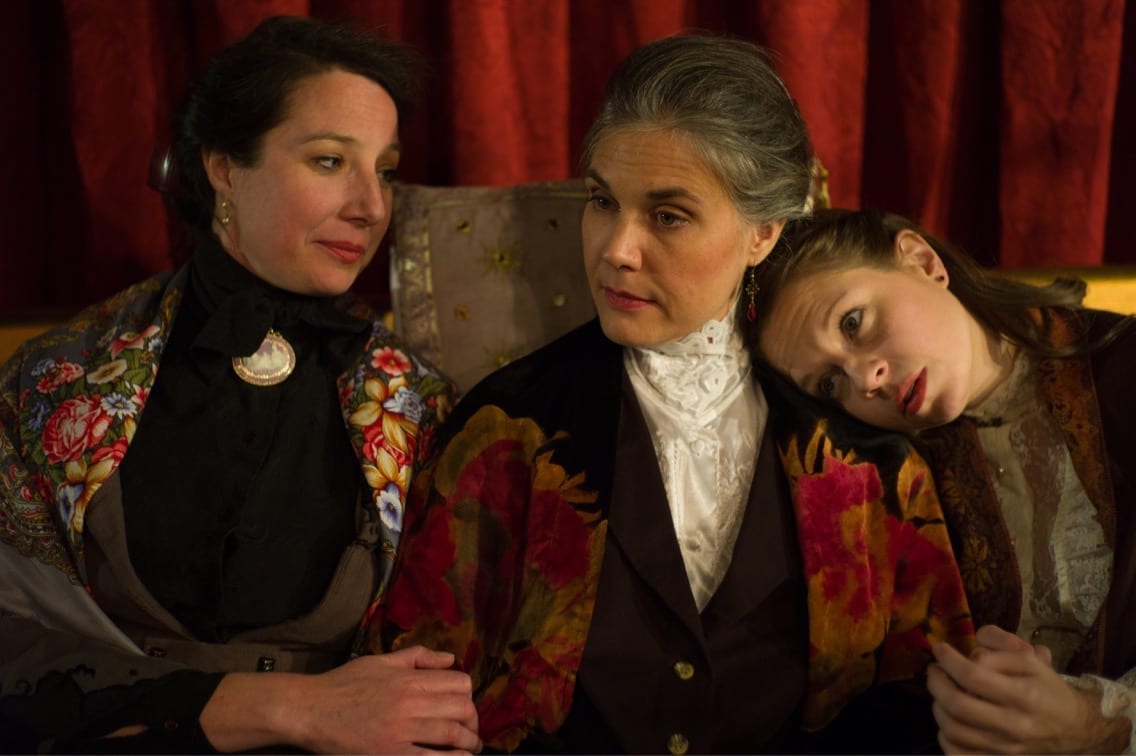Sarah Ruhl, the funny, sensitive somewhat absurdist playwright of our time, interpreting Anton Chekhov, the grandfather of it all– what a treat. In her introduction to the translation, she praises Chekhov’s ability to capture “laments with humor,” the ability to acknowledge one’s destiny while simultaneously embracing thoughtful laughter. She warns that one must avoid complaint when translating (or presumably producing) Chekhov, for it would be against the spirit of his writing, which she tried her best to preserve. I introduce all of this to say that in my opinion, Undermain’s crowning achievement of the evening is the actors’ ability to portray these laments with humor without these moments coming off as complaining. The moments are funny, but profound. They allow the audience to laugh, while challenging us to think.
Three Sisters is the story of Masha, Irina, and Olga, the three daughters of the respected commander of a Russian military outpost. The three sisters also have a brother, Andrei. While Andrei is settling into life in their current situation, the sisters, dream of independence, romantic relationships, and a triumphant return to Moscow. Early in the play, they are introduced to two new characters who will influence their lives dramatically. Vershinin is a new soldier who hopes to woo Irina, and Natasha, a local woman who wants a better life for herself.
The two standout performances of the night are Jenny Ledel as Irina and Ashlee Elizabeth Bashore as Natasha. From the moment the lights come up, Ledel commands the stage when she is on it. She depicts an Irina who is strong and unafraid to dream, even in a harsh and unforgiving environment. Bashore’s performance captures the change that Natasha undergoes throughout the play. In the beginning, Natasha is shy and scared, but after she and Andrei are married, she is boldly cold and calculating.
The small, arena-style stage is surrounded by the audience. Encompassing the audience is a birch forest sprinkled with chandeliers, which creates an intimate ambience. The stage itself is simply a light grey wood panel floor. The furniture changes slightly from scene to scene, but is enough to indicate a family living with the pretences of status and money. The most captivating part of the set design is the five chandeliers spaced around the stage. Each chandelier is covered with translucent white fabric, giving the set an eerie, Victorian vibe. When we first sit down, each of the chandeliers is at a different height, some almost at the floor. Once the play begins, they are slowly hoisted to the ceiling.
Throughout the play, the fourth wall is virtually dispensed with, with characters stomping off in all directions behind and around the audience members. These moments both enhance the familiarity between audience and cast and simultaneously disorient us.
Although Chekhov’s themes are often deeply tragic, his distance on this odd business of being a human always leaves room for at least some pained laughter. In trying to actually infuse very little of herself into the text, Ruhl delivers a fairly literal translation. And why not? What Ruhl treasures is all there already.

